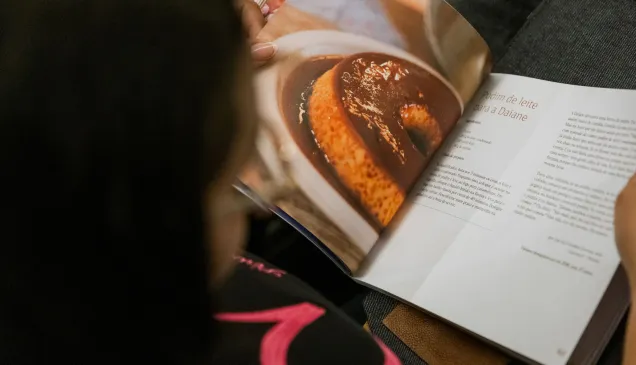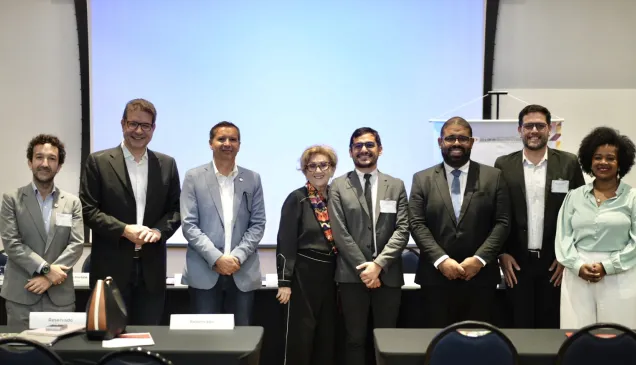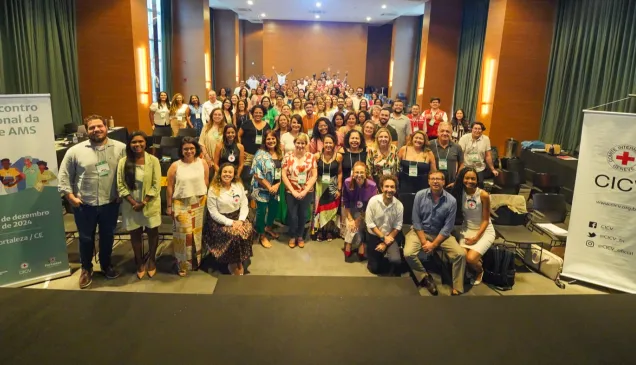Brazil: 2024 - promotion of international humanitarian law (IHL) and responses to the effects of armed violence

The year 2024 was intense, and was punctuated by milestones that strengthened the activities of the International Committee of the Red Cross (ICRC) regional delegation for Argentina, Brazil, Chile, Paraguay and Uruguay. We celebrated the 75th anniversary of the 1949 Geneva Conventions at a seminar at the Rio Branco Institute, in partnership with the Ministry of Foreign Affairs (MRE) and with the support of the National Commission for the Dissemination and Implementation of IHL (CADIH), with the participation of diplomats, authorities, academics and students. In another very important milestone, a global initiative was launched to strengthen political commitment to IHL, which has the fundamental support of Brazil, as well as five other countries.
We support authorities in responding to the humanitarian effects of armed violence in Brazil, such as missing persons, forced internal displacement and the disruption of essential public services.
In our region, we work with prison authorities to improve the management and infrastructure of prison systems, and with security and police authorities and forces to incorporate international human rights standards into education, legacy , training and internal control mechanisms for police activity. There was also cooperation with other members of the International Red Cross and Red Crescent Movement during this period.
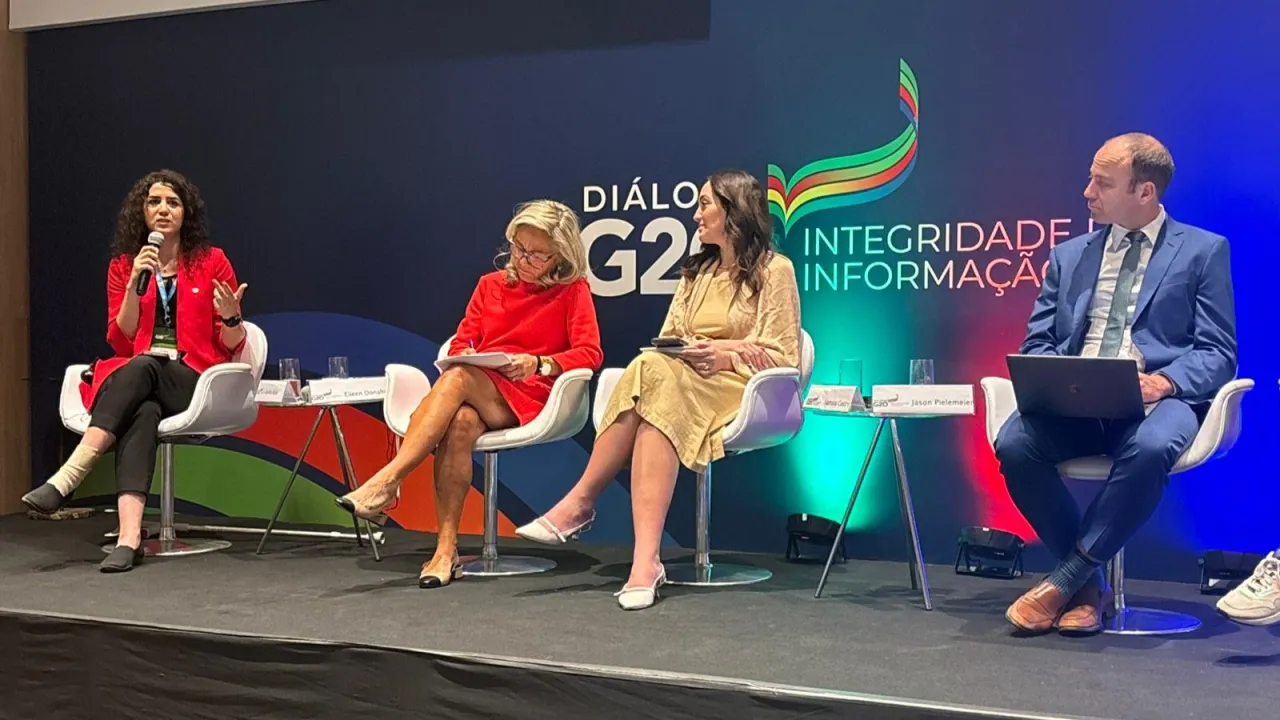
Disinformation and hate speech discussed at the G20
Amplified by digital platforms, disinformation and hate speech intensify polarization, violence and harm, and affect civilians in armed conflicts. These phenomena jeopardize peoples’ security, dignity and well-being, which is why the ICRC seeks to understand their effects, involve communities in their prevention and foster resilience. At the seminar entitled "Information Integrity: fighting disinformation, hate speech and threats to democracy", organized by the Brazilian presidency of the G20, Joelle Rizk, the ICRC’s Digital Risk Adviser, gave a presentation on our humanitarian concerns and our work. More than 550 experts, professionals from related fields and representatives from 50 countries took part in the side event.
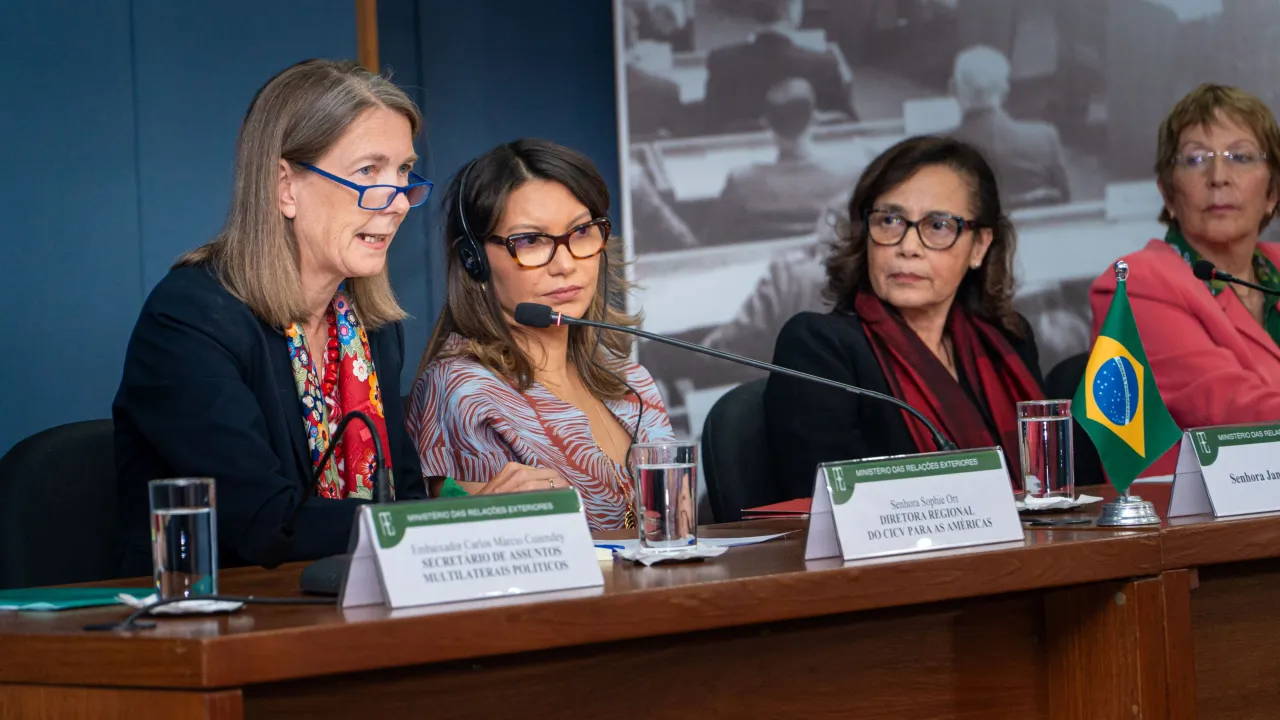
Seminar marks 75 years of the Geneva Conventions
In partnership with the Brazilian Ministry of Foreign Affairs, we celebrated the 75th anniversary of the 1949 Geneva Conventions during a seminar at the Rio Branco Institute in September, in an event that also helped raise awareness about the importance of international humanitarian law in contemporary armed conflicts. First lady Janja Lula da Silva, the Secretary General for Foreign Affairs, Ambassador Maria Laura da Rocha, and the Swiss Ambassador to Brazil, Pietro Lazzeri, were present, together with academics, students and authorities. Since their adoption, the Conventions have helped protect the lives and dignity of millions of people. But the most basic principles of the Conventions are not being respected today.
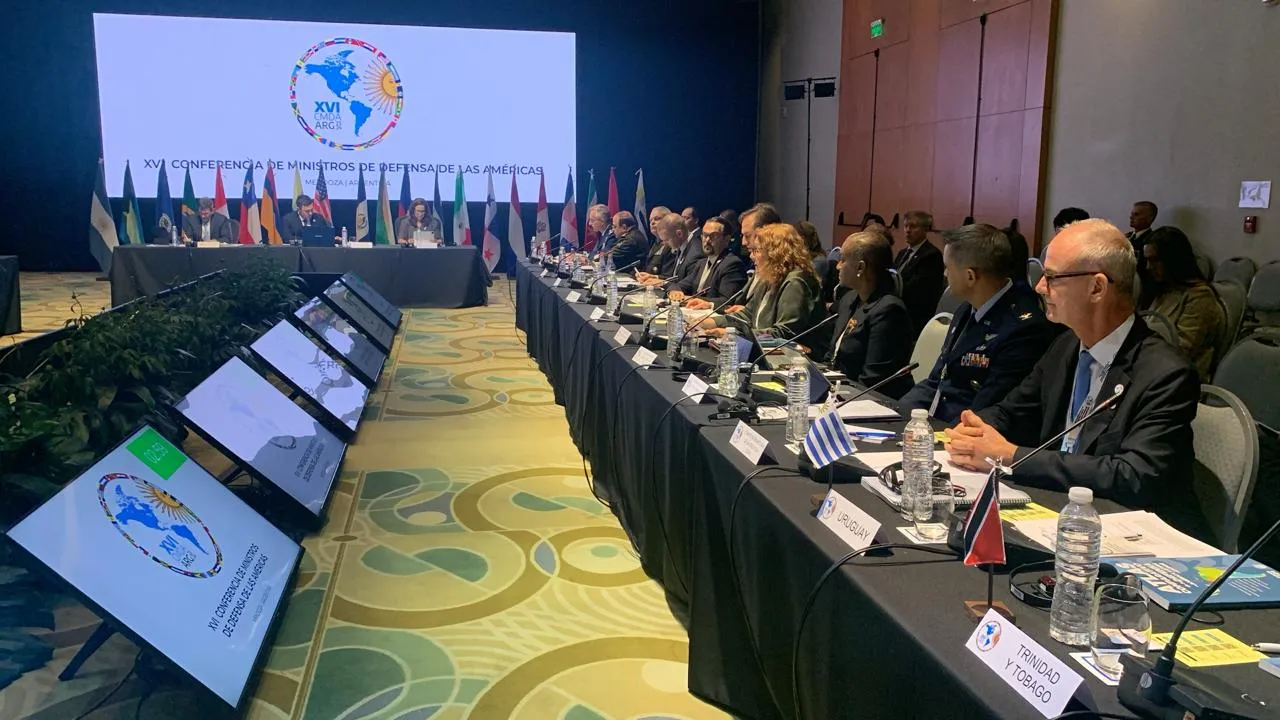
IICRC promotes IHL at the VI Conference of Defense Ministers of the Americas
ICRC Vice-President Gilles Carbonnier took part in the XVI Conference of Defense Ministers of the Americas in Mendoza, Argentina. The event in October brought together 33 delegations from different countries, with a total of around 230 participants. They discussed topics related to the promotion and integration of, and compliance with, IHL, the challenges of cyber operations and artificial intelligence applications in land, air and sea defence activities and in outer space.
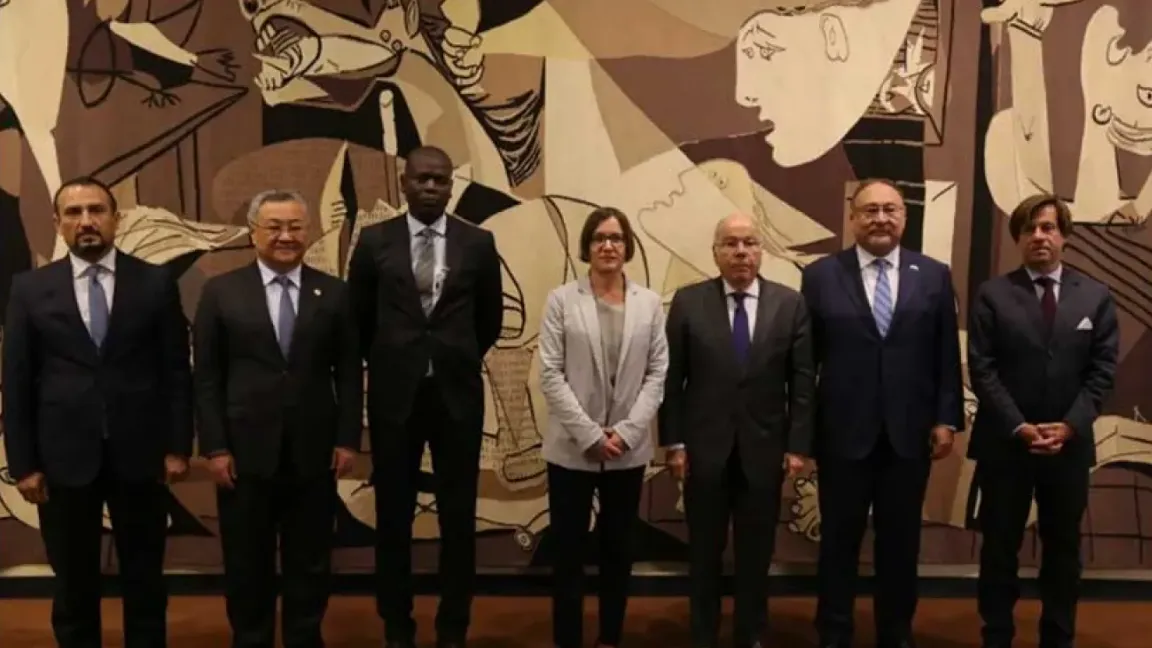
Global initiative strengthens political commitment to IHL
Together with the governments of Brazil, China, France, Jordan, Kazakhstan and South Africa, we launched a global initiative to galvanize political commitment to IHL. The work will culminate in a High-Level Meeting to Uphold Humanity in War in 2026. Our hope is that more countries can join the initiative, which represents a joint effort to strengthen IHL. The initiative also complements a renewed global focus on promoting an agenda for peace, reinforcing the protection of civilians and strengthening the system of global governance, ensuring international cooperation and improved protections for people affected by armed conflict.
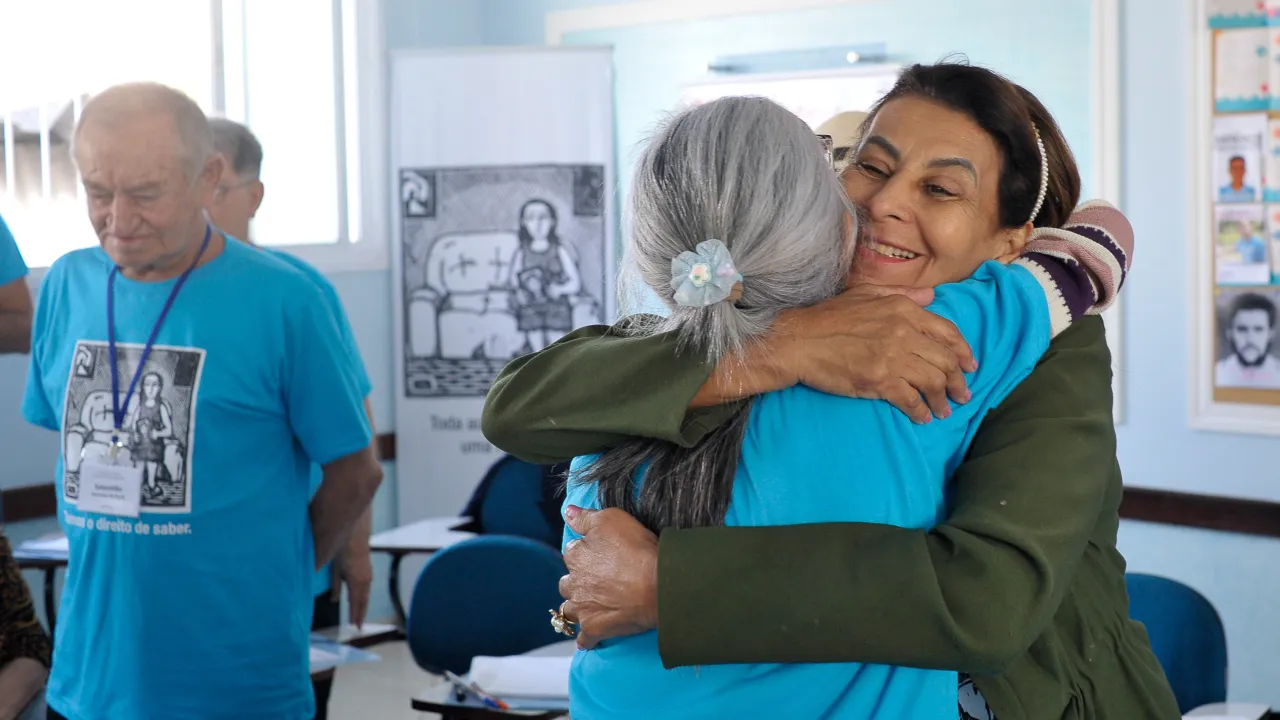
Second National Conference on Missing People consolidates alliance
We supported the Second National Conference of Relatives of Missing People, organized in São Paulo in June by a committee of relatives of missing people. The event, held in June and attended by more than 70 relatives, was another step in the alliance of groups and associations in a national movement of relatives. Their resilience is strengthened by this unity. It also supports recognition and enables progress in the joint search for solutions. We also continue to work with the authorities responsible for national policy on the search for missing people, supporting them in coordinating the various existing initiatives.
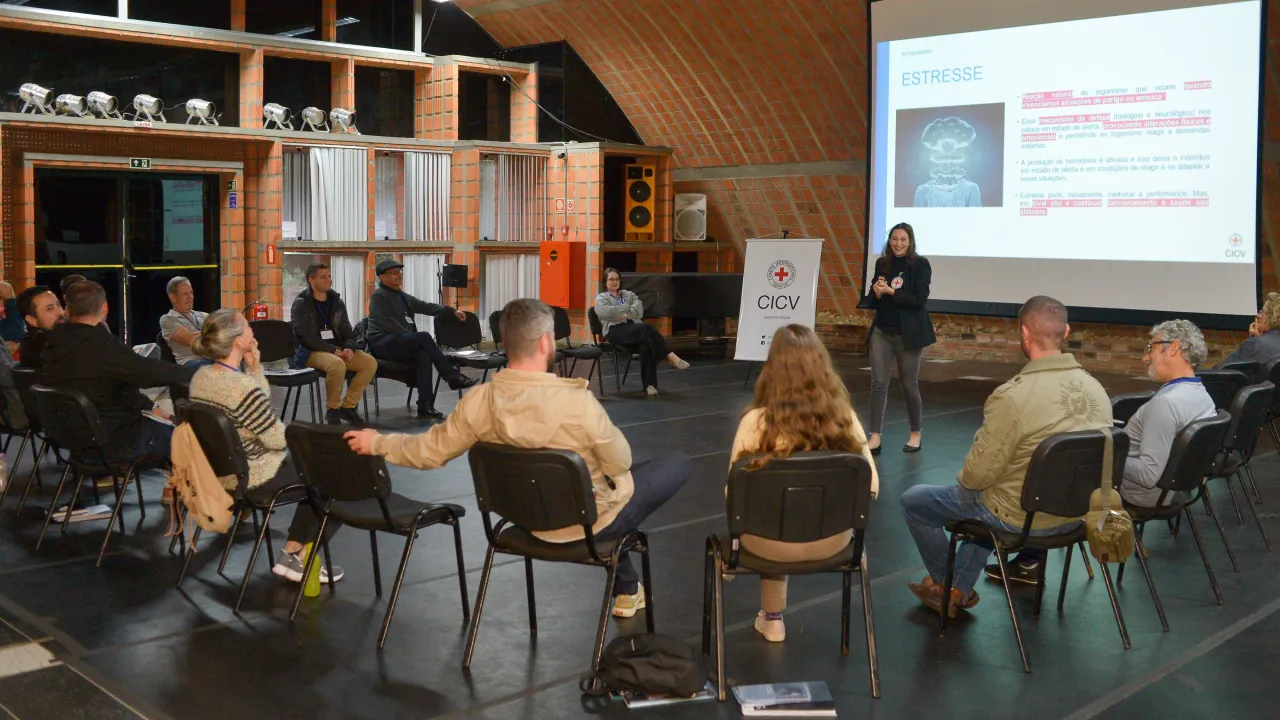
Workshop prepares civil servants to welcome family members seeking information
In partnership with the Forensic Medical Institute of São Paulo (IML-SP), we organized the second workshop on "Assisting and giving basic psychosocial support to the relatives of missing people at specific moments in their search", at the State University of Campinas (Unicamp). The training was aimed at 25 IML-SP officials who work directly with relatives seeking information about missing loved ones and/or relatives of identified and unclaimed deceased people in the Campinas region and nearby towns.
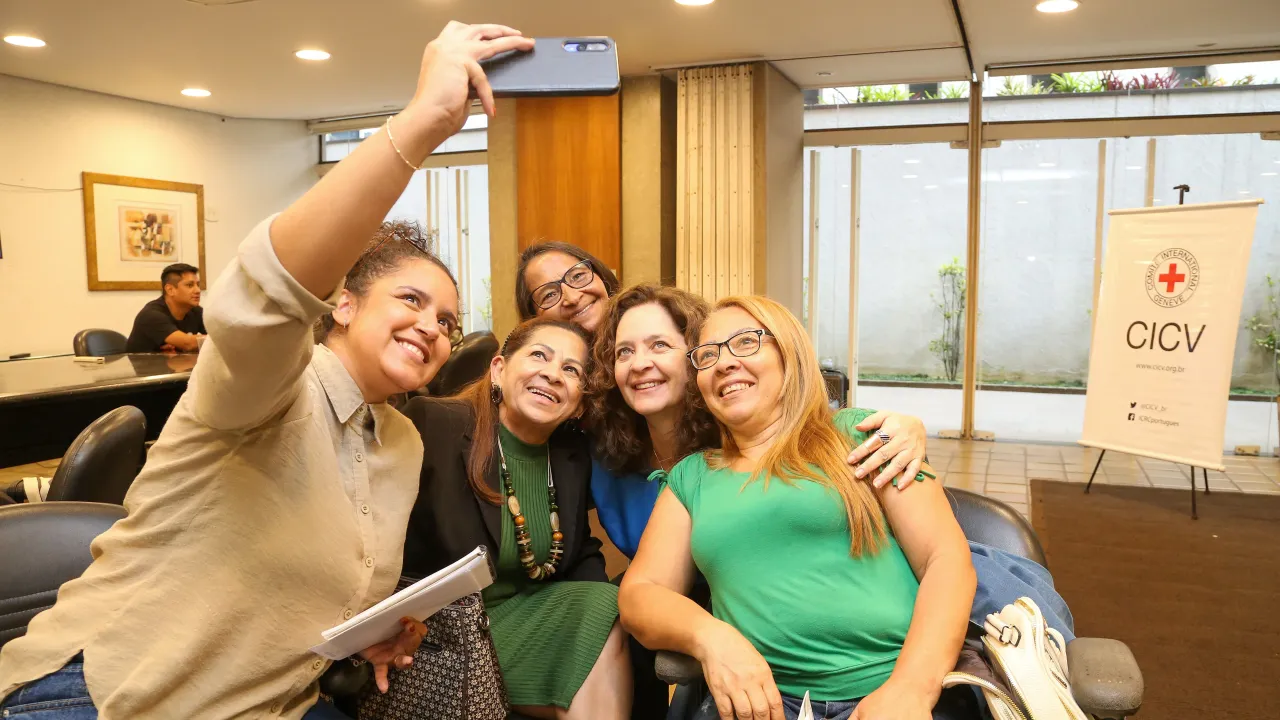
Relatives are trained in communication tools
In March, Mulheres de Fé com Esperança, a collective of relatives of missing people, took part in the workshop "Why and how to communicate”, which looked at different communication elements and tools, with the aim of increasing the group’s visibility.
In November, the focus of the work with leaders of collectives in São Paulo was on social media. During the activity, we distributed our handbook "How to communicate better”. This handbook gives an overview of social media and tips for communicating more effectively in online spaces, during meetings and with the press.
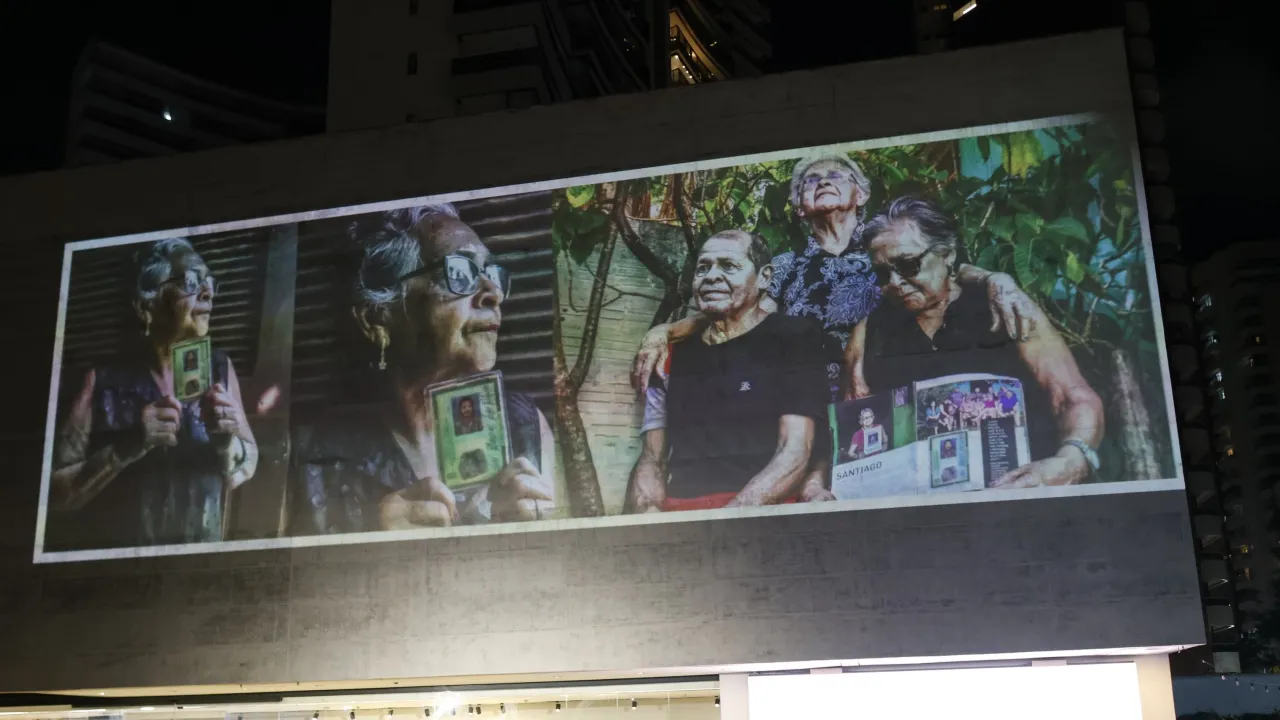
Cuca Network and ICRC promote exhibition about missing people
We have supported the Cuca Network in Fortaleza with an extensive course in "Documentary Photography". Over four months, the young people take part in lectures and practical classes and attend workshops and meetings to discuss topics such as protecting people, mechanisms for searching for and locating missing people, and communication in the humanitarian context. The pre-launch of the exhibition "Espera", a showcase of photographs by Cuca Jangurussu students, took place in December.
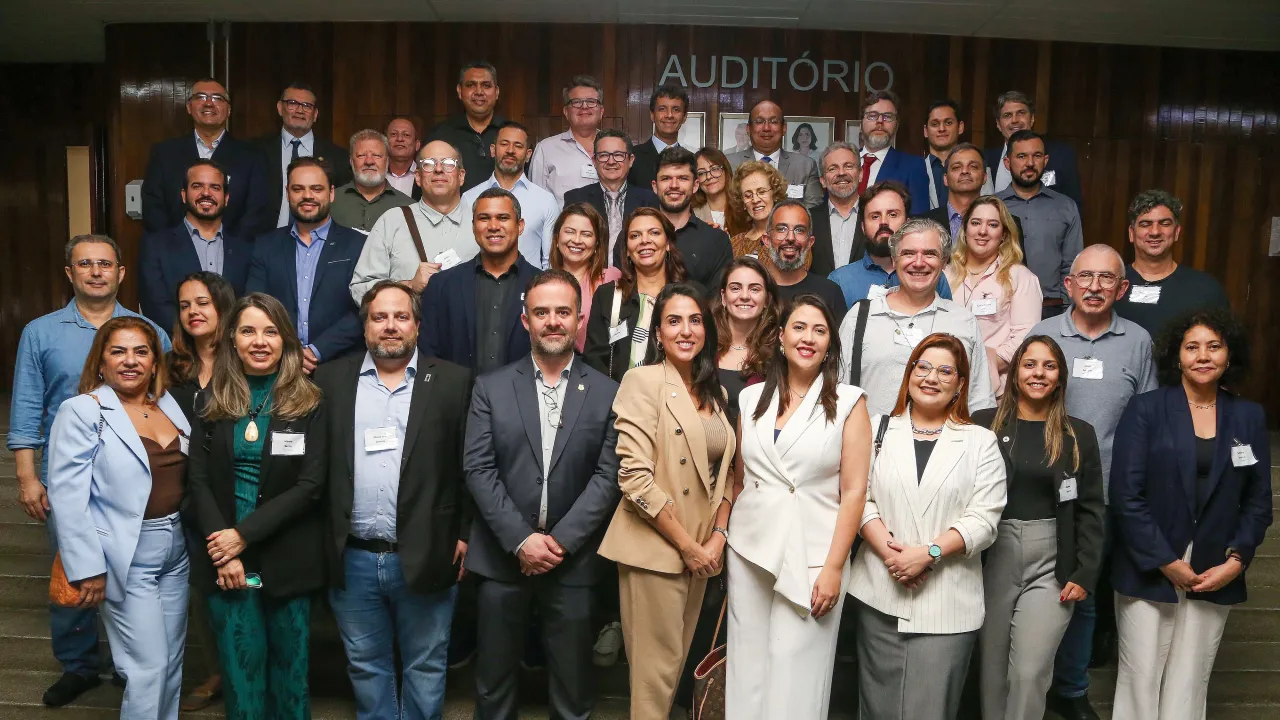
Third meeting of forensic medicine institutes (IMLs) brings together members of the forensic police and government
In partnership with the National Secretariat for Public Security (Senasp), the National Council of Forensic Police Directors (CONDPC) and the Forensic Medical Institute of São Paulo, we organized the third national meeting of IMLs in São Paulo, attended by directors of forensic medicine institutes, forensic police directors and associations. One of the aims of the meeting in November was to discuss the implementation of the human identification guide drafted and published in 2023. The event launched a round of touring that will allow for exchanges between the country’s IMLs. This initiative is part of the ICRC’s efforts to support the national policy on the search for missing people. We also supported the national mobilization for human identification (Mobilização Nacional de Identificação Humana) in August, which offered technical forensic support for the implementation of the campaign and facilitated the participation of relatives of missing people in the process.
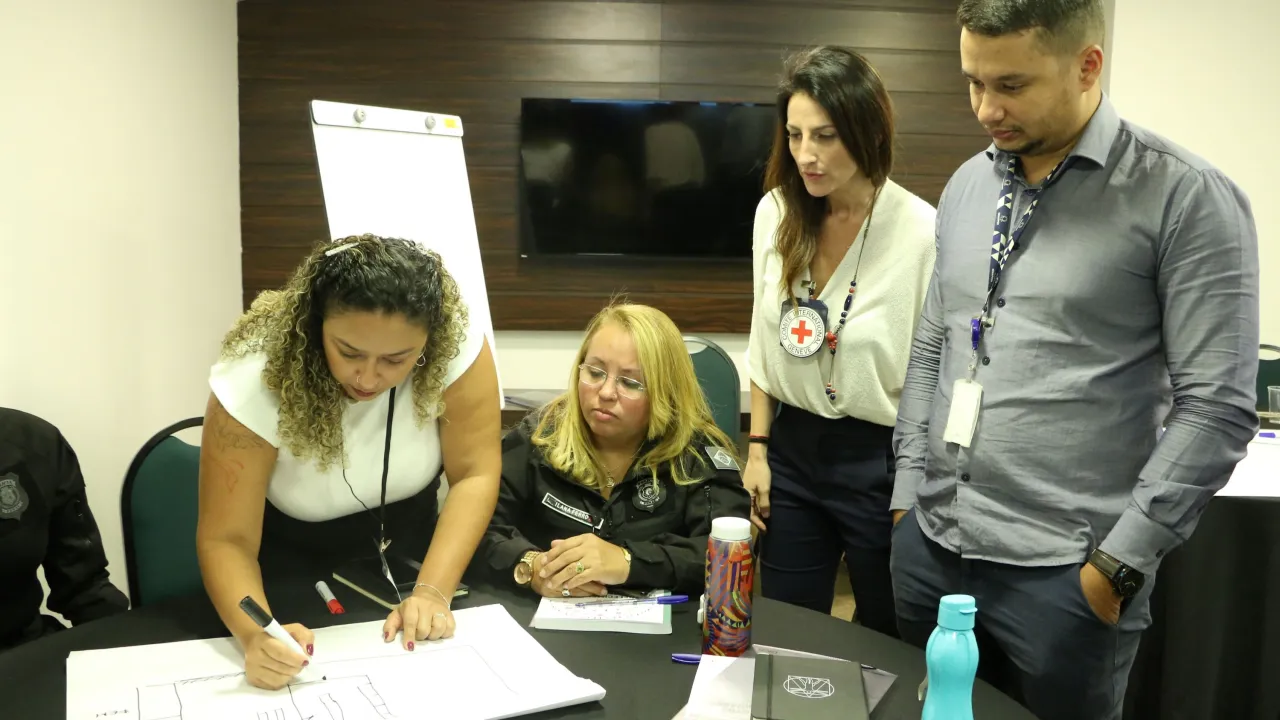
Prison authorities discuss more humane management of the prison system in the region
A meeting attended by three countries participating in the Criteria for Technical Standards for Prison Infrastructure (CETIP) project, which is supported by the ICRC, drafted a manual with procedures and minimum rules for a more humane management of the prison system in Latin American countries.
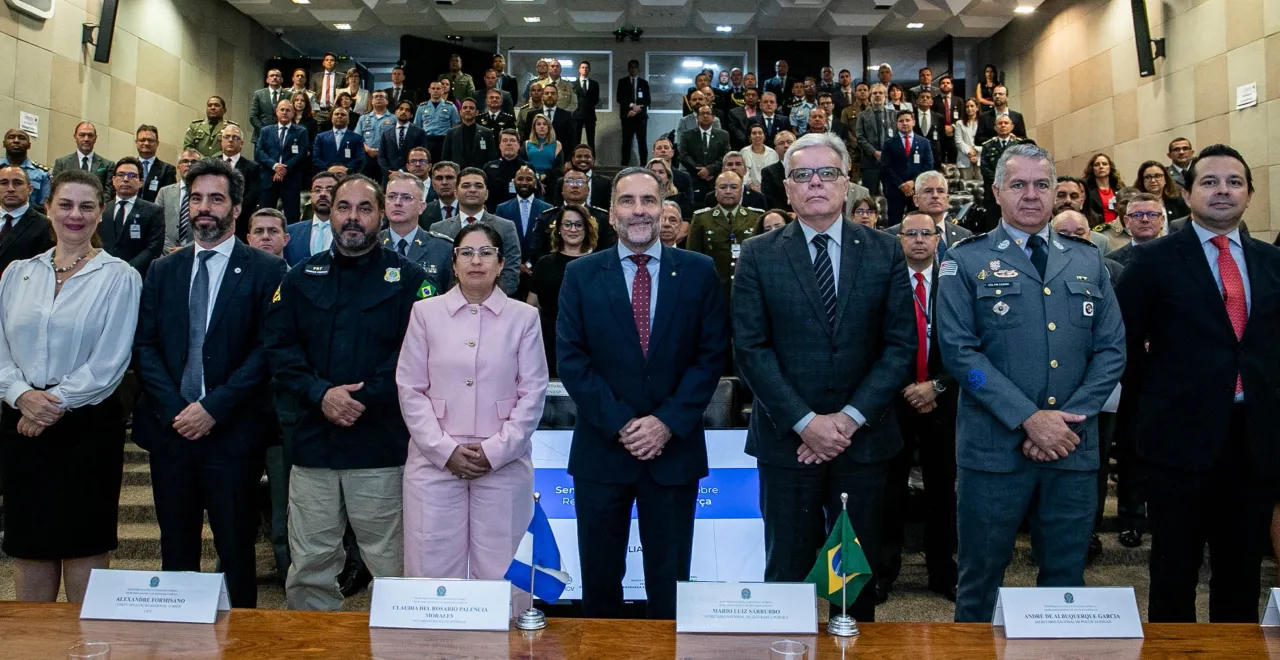
The ICRC works on regulations and training on the use of force
In partnership with the Ministry of Justice and Public Security (MJSP), we organized a seminar to discuss how the use of police force is regulated in Latin America. The ICRC actively participated in the working group that revised these guidelines in Brazil. This effort resulted in the publication of Decree 12.341/2024 in December 2024, which governs Law 13.060/2014 governing the use of force and less violent means of law enforcement.
We also support public security institutions in regulating the use of force and sharing good practice in police actions. In support of the Military Police of Ceará, we helped revise the standard operating protocols for the use of force and provided guidance on their use in education, training and internal supervision. In Rio de Janeiro, we supported the Municipal Guard in drawing up its standard operating protocols for the use of force and we began this work with the State Military Police. In Chile, we trained 40 human rights instructors from its Carabineros police force.
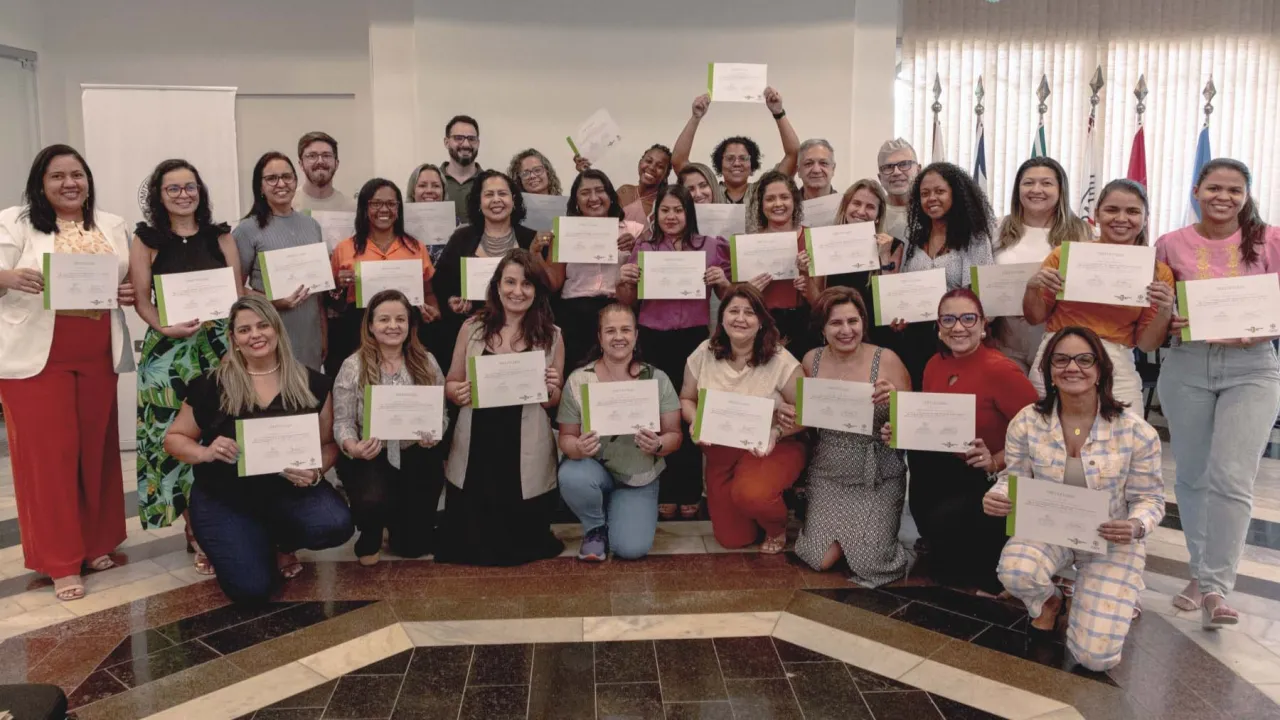
Good practices in focus at AMS facilitators’ meeting
The ICRC’s Safer Access to Essential Public Services (AMS) Programme organized the first meeting of facilitators at our headquarters in Brasília. The meeting brought together more than 40 education, health and social care professionals from municipal and state departments to discuss good practices covering the main elements of the programme’s implementation and sustainability.
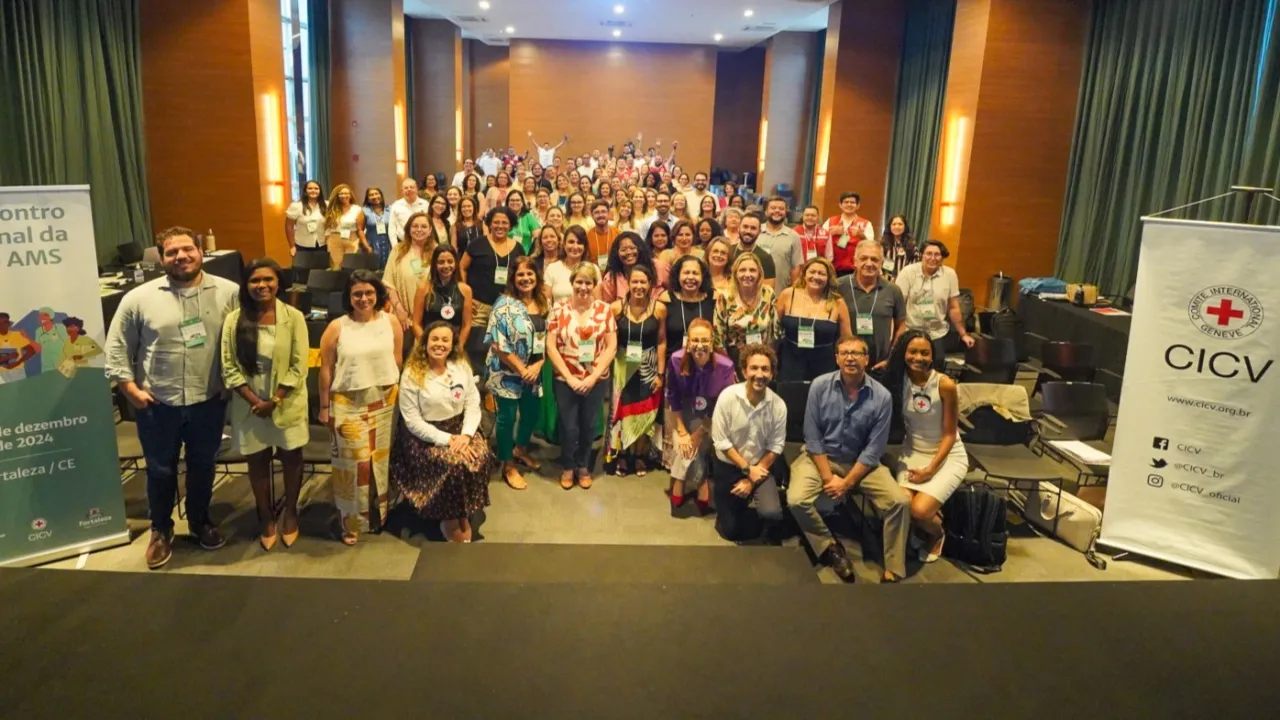
National meeting of the AMS network brings together 130 professionals in Fortaleza
We held the ninth national meeting of the AMS network, with the support of Fortaleza City Council. The event was attended by 130 educators, health and social care professionals from Duque de Caxias, Fortaleza, Florianópolis, Porto Alegre, Rio de Janeiro, São Paulo, Salvador and Vila Velha, cities that are implementing the programme. The theme was "Intersectorality in building a sustainable AMS".
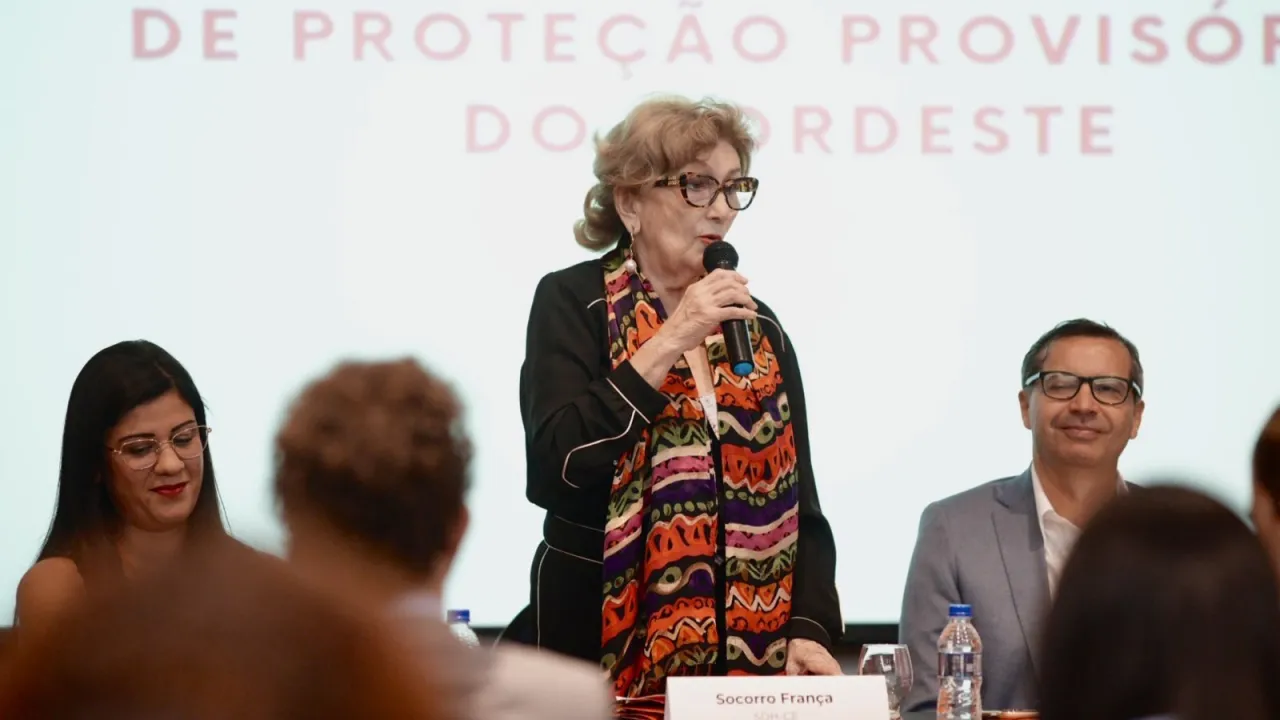
The challenges of protecting people in the context of armed violence
In partnership with Gabinete de Assessoria Jurídica às Organizações Populares (Gajop), a legal firm providing advice to civil society associations, we held the second meeting of Provisional Protection Programmes (PPROs) in Fortaleza. The event, focusing on "challenges for the protection of people in the context of armed violence in the Northeast Region", brought together more than 50 people, including authorities from the Federal Government, the regional governments of Ceará, Bahia and Pernambuco, and specialists who are implementing provisional protection programmes in six states.
We also provided emergency aid to around 80 people who had been displaced by the violence in Fortaleza. These families were identified by the Rede Acolhe programme run by the Ceará Public Defender’s Office, and referred to the ICRC because they had been displaced by armed violence in Fortaleza.
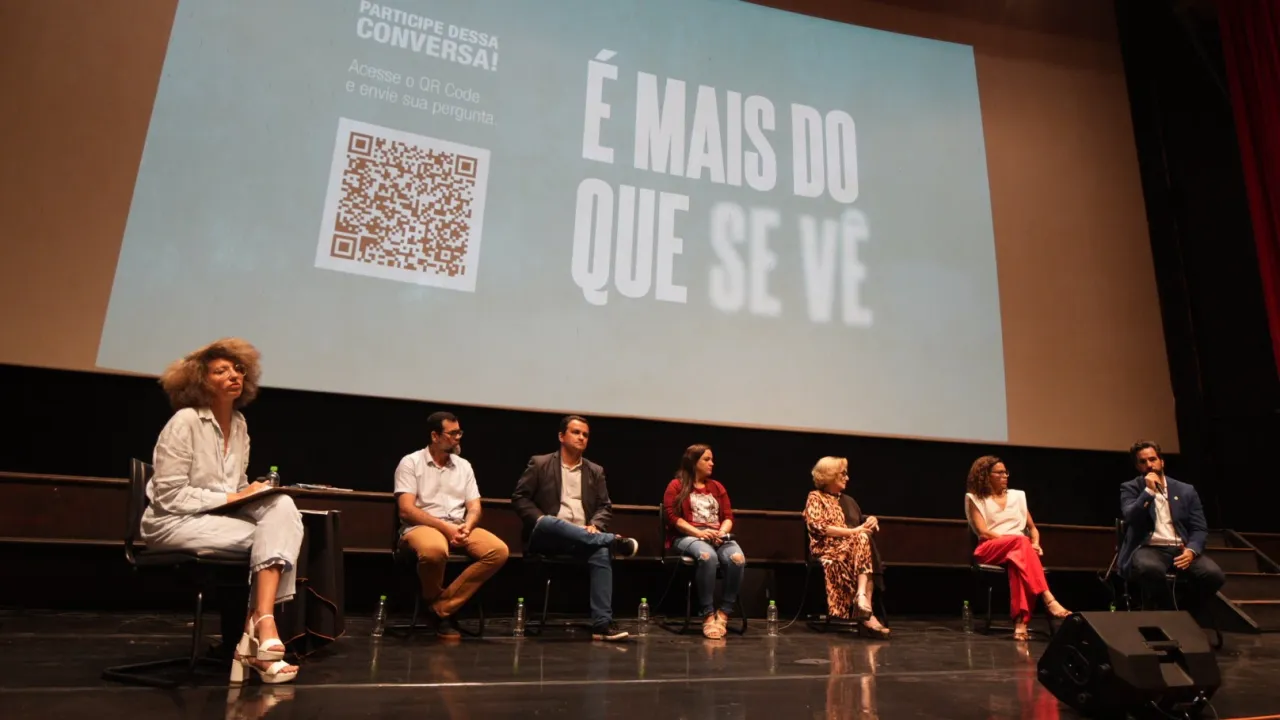
Film reveals the invisible impacts of armed violence
We held the premiere of the documentary "It's More Than You Can See: the invisible impacts of armed violence", at the São Luiz cinema in Fortaleza. The premiere was well attended by representatives from authorities and civil society, and there was a panel discussion. The event also launched the short film "Uz Crias na Periferia", which was created in partnership with the Bom Jardim Cultural Centre (CCBJ). The film reveals the consequences of armed violence through six life stories and brings together experts and authorities who discuss the actions being taken in Ceará to address this difficult reality. The short film is the product of an educational experience involving 15 teenagers from the Bom Jardim neighbourhood.
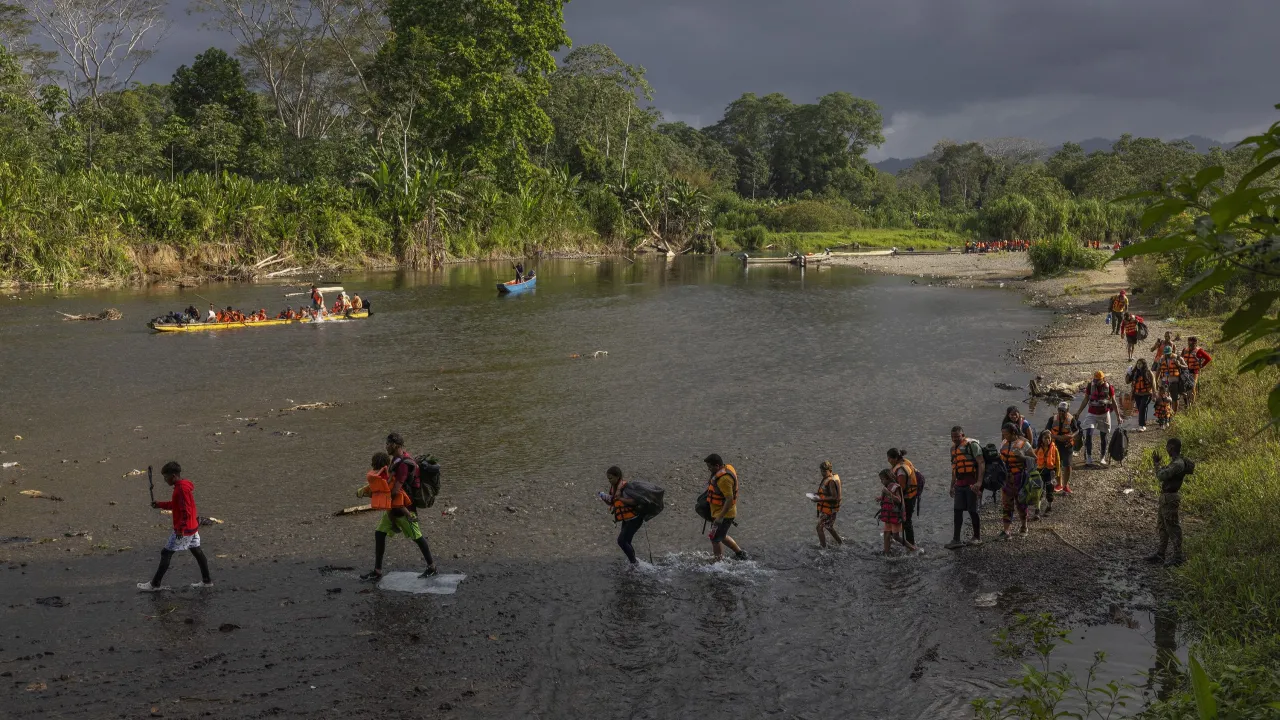
Promoting people-centred press coverage
We promoted the sixth edition of the ICRC International Humanitarian Coverage Award, which had 42 entries. The award was won by the "Darién, a selva da morte" (Darién, the jungle of death) report, by Mayara Paixão and Lalo de Almeida (Folha de São Paulo). The five-part series of reports highlights the dangers of this crossing and its connections with Brazil and the world. In partnership with Oboré, we held the 23rd edition of "Journalism on War and Armed Violence" – Reporter of the Future Project. Over the course of five Saturdays, 50 university students had the opportunity to learn about how the ICRC works in Brazil and around the world, the importance of the Geneva Conventions, the limits of the use of force and combating the spread of harmful speech, amongst other topics.
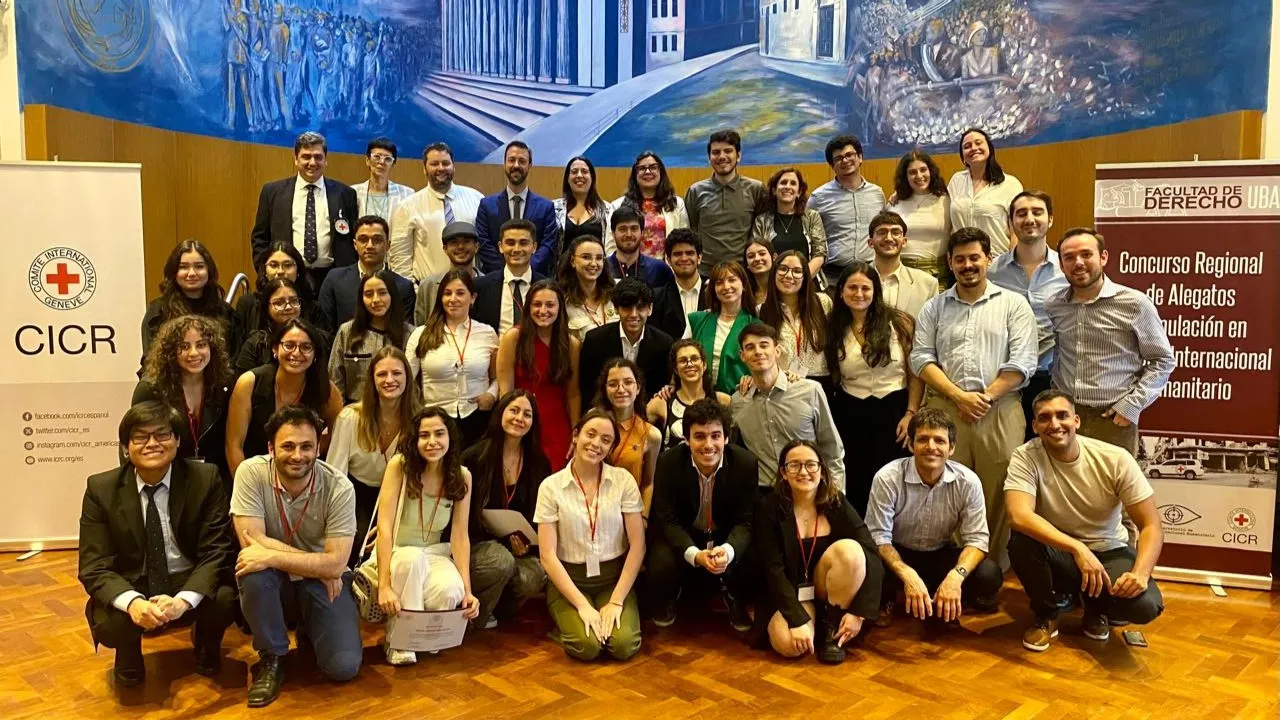
Students take part in IHL competitions
More than 30 students from Argentina, Brazil, Peru and Ecuador took part in the 4th Regional Debates and Simulations in International Humanitarian Law (IHL) Competition, organized by the UBA IHL Observatory at the University of Buenos Aires Law School. This year’s big winner was the Argentinian team from the University of Buenos Aires (UBA).
In March, another team from the UBA Law School, consisting of Julieta Sielecki, Efrén Sifontes and Leandro Arias, won the 43rd edition of the Concours Jean-Pictet, a competition that involves IHL role-play exercises and simulations, held in Bredene, Belgium.
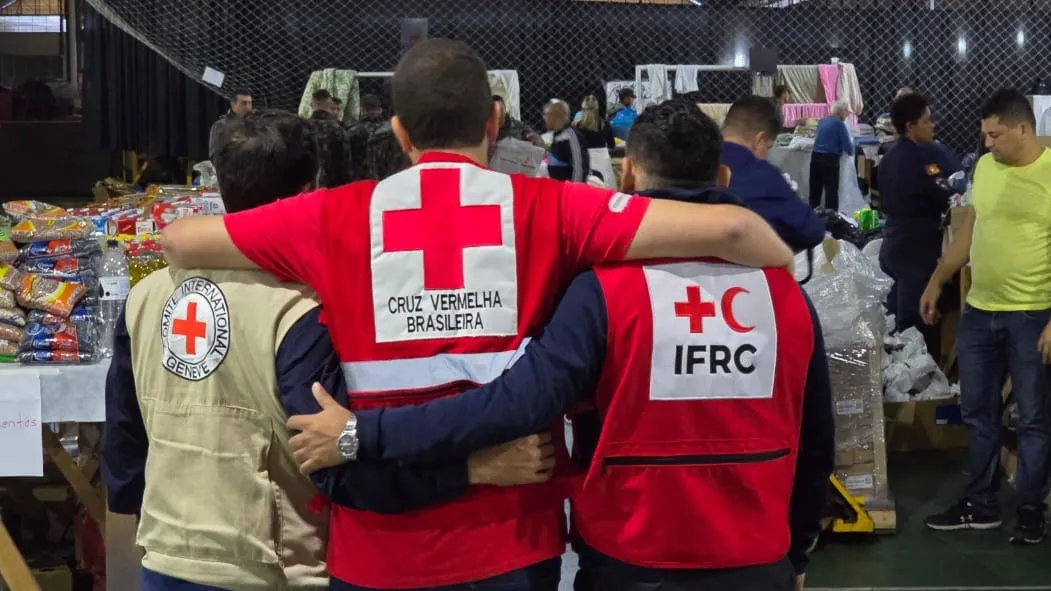
Working together to protect family ties
One of the main activities involved in our work in cooperation with the Red Cross in the five countries of the region is that of helping families re-establish contact with each other. To ensure a more coordinated response, we support the sharing of experiences and the development of strategies that will ensure these situations are responded to in the most appropriate way.
In Brazil, in 2024 we worked closely with the Brazilian Red Cross and the International Federation of the Red Cross on supporting those affected by the floods in Rio Grande do Sul. We were able to take part in actions to put families in contact and plan responses to the disaster.
As part of our work with national associations, we also held the first regional protection workshop of the International Red Cross and Red Crescent Movement in Buenos Aires, in conjunction with the International Federation and the Argentine Red Cross. The aim of the workshop was to share experiences and find collective solutions to better protect the people we work with.
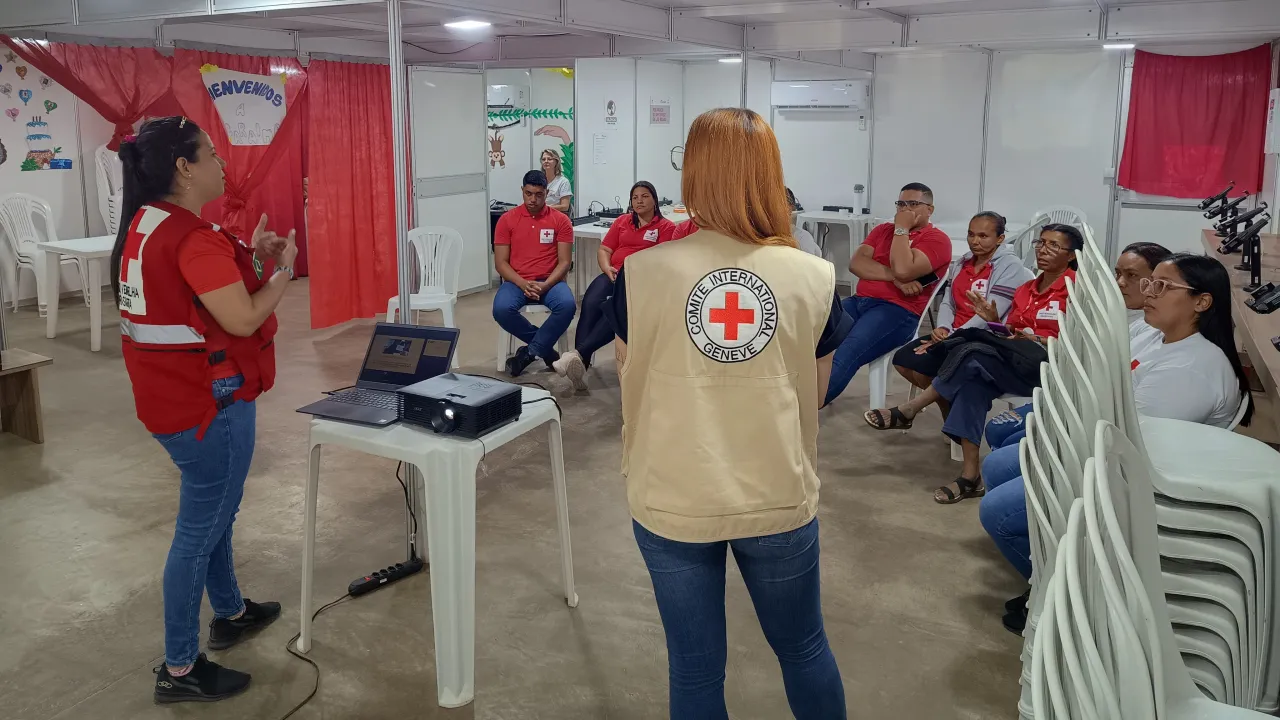
Cooperation work in the north focuses on the migrant population
We supported the Brazilian Red Cross in more than 200,000 connectivity services in 2024 alone, mainly in the north of the country and particularly with migrants, especially migrants from Venezuela.
We supported the Brazilian Red Cross in more than 200,000 connectivity services in 2024 alone, mainly in the north of the country and particularly with migrants, especially migrants from Venezuela.

